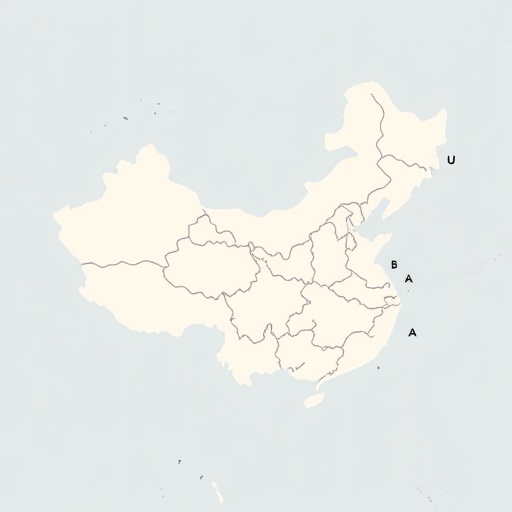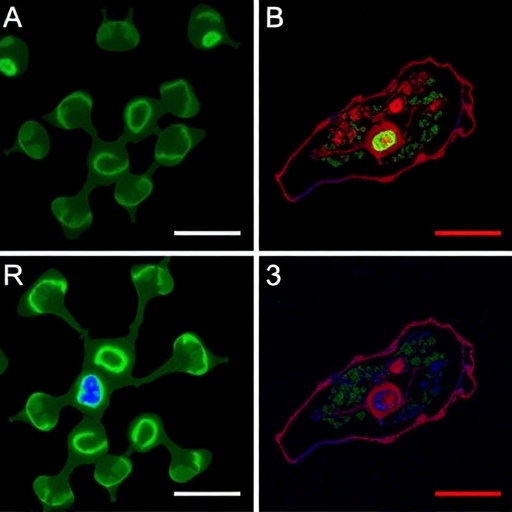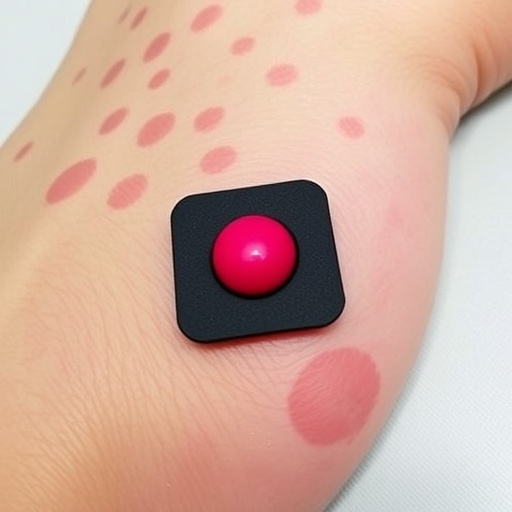In a world where contemporary medicine increasingly hinges on evidence-based practices, a recent qualitative study out of China sheds light on the multifaceted challenges facing nurses seeking to implement these guidelines. Conducted by a dedicated team, including Wang, H., Xiang, X., and Sun, L., the research unravels the barriers encountered in a developing nation with immense potential for advancement in the nursing field. The study’s findings anticipate broader implications for nursing practices not only in China but also in similar contexts globally.
Evidence-based nursing practice (EBNP) represents a paradigm shift, advocating for care approaches rooted in the best available evidence, clinical expertise, and patient preferences. However, the transition to EBNP is fraught with obstacles that may impede nurses from fully adopting this approach. In particular, this research identifies systemic, educational, and cultural factors that significantly hinder the progress toward evidence-based care in China.
One of the predominant barriers highlighted is the lack of access to comprehensive research databases and resources among nursing professionals in China. Unlike many developed countries, where extensive libraries and online resources abound, many Chinese nurses find themselves limited in their ability to access relevant studies, systematic reviews, and up-to-date healthcare literature. This lack of resources creates a significant knowledge gap that directly impacts clinical decision-making and patient outcomes.
Another critical aspect explored in the study is the educational framework surrounding nursing in China. The traditional curriculum often emphasizes rote learning rather than critical thinking and analytical skills. This educational approach does not prepare nurses to engage with research effectively or to evaluate its applicability within their specific practice situations. As a result, many nurses may find themselves unsure about how to incorporate research findings into their everyday clinical practices, thereby perpetuating outdated methods of treatment.
Cultural attitudes towards nursing and the hierarchies within the medical field also play a pivotal role in shaping nursing practices. According to the study, the prevailing perception of nursing as subordinate to physician roles leads to a diminished confidence in nurses’ abilities to contribute to evidence-based practices. When nurses feel undervalued, their willingness to advocate for innovative approaches diminishes, further stymying the adaptation of EBNP in their institutions.
Additionally, organizational barriers present a formidable challenge. Nurses experience a lack of administrative support for implementing evidence-based practices. Many healthcare facilities in China lack dedicated resources for training nurses in EBNP methodologies or providing time during their busy schedules to engage with ongoing research. Without the requisite backing from healthcare administrators, it becomes incredibly difficult for nurses to push for changes that would lead to improved patient care through evidence-based methods.
Communication gaps between nursing staff and physicians also pose significant barriers to achieving evidence-based practice. In many instances, nurses may not feel empowered to voice their insights or suggestions, often leading to a disconnect between the nurses implementing care and the physicians prescribing it. This disconnect can hinder the collaborative efforts needed to ensure that evidence-based practices are fully integrated into patient care plans, ultimately impacting patient safety and outcomes.
The results of this qualitative study also point to a pressing need for increased advocacy for policies that support evidence-based nursing practices. It is vital for policymakers and health administrators to recognize the unique challenges faced by nurses and to formulate strategies that not only address these barriers but also encourage collaboration across disciplines. By reinforcing the role of nursing in the healthcare system, it is possible to create an environment conducive to the adoption of evidence-based practices.
Furthermore, the study emphasizes the importance of fostering a culture of research within nursing education. Training programs must evolve to prioritize critical thinking, evidence appraisal, and application of research findings. Nursing educators are urged to create curricula that not only inform students about existing literature but also engage them in the research process itself. This shift in educational focus can empower future generations of nurses to become champions of evidence-based practices in their careers.
Healthcare institutions must also prioritize the establishment of mentorship programs aimed at guiding nurses through the complexities of evidence-based practice. Experienced nurses can mentor their less-experienced colleagues, thereby facilitating a supportive learning environment that encourages inquiry and implementation of new knowledge. Such programs can bridge the transitional gap from theory to practice, making evidence-based care more accessible and actionable.
Moreover, incorporating technology and digital resources into nursing practice can significantly alleviate some of the barriers identified in this study. Enhancing access to research through mobile applications and digital library subscriptions can empower nurses to engage with clinical evidence readily. As technology continues to advance, leveraging these tools will be essential for promoting a culture of continuous learning and improvement within the nursing community.
While the study provides a comprehensive overview of the barriers faced by nurses in China, it signals an urgent call to action for healthcare stakeholders. To facilitate the integration of evidence-based practices, it is critical to address not only the educational and organizational challenges but also to instill a respect for the nursing profession. As nurses strive for excellence in patient care, it is essential that the structural and cultural limitations be dismantled to produce a workforce that is fully equipped to meet modern healthcare demands.
In conclusion, the qualitative study by Wang, H. et al. shines a spotlight on the immense potential for nursing in China to evolve towards a more evidence-based practice. By systematically addressing the barriers identified, from access to educational reforms and fostering a culture of collaboration, the nursing field can navigate the complexities of modern healthcare effectively. This research represents a pivotal step in advocating for a future where evidence-based care is not just an ideal but a practical reality for nurses in every corner of the globe.
Subject of Research: Barriers to evidence-based nursing practice in China
Article Title: Exploring barriers to evidence-based nursing practice in a developing yet promising nation: a qualitative study from China
Article References:
Wang, H., Xiang, X., Sun, L. et al. Exploring barriers to evidence-based nursing practice in a developing yet promising nation: a qualitative study from China.
BMC Nurs 24, 1398 (2025). https://doi.org/10.1186/s12912-025-04040-6
Image Credits: AI Generated
DOI: https://doi.org/10.1186/s12912-025-04040-6
Keywords: Evidence-based nursing, barriers, China, qualitative study, nursing education, healthcare policy.
Tags: access to research resources for nursesbarriers to evidence-based nursing in Chinachallenges in implementing evidence-based practicescultural influences on nursing in Chinaevidence-based nursing guidelinesevidence-based nursing in developing countrieshealthcare literature access for nursesimplications for global nursing practicesnursing education and evidence-based carenursing profession advancement in Chinaqualitative study on nursing challengessystemic obstacles in healthcare practices





